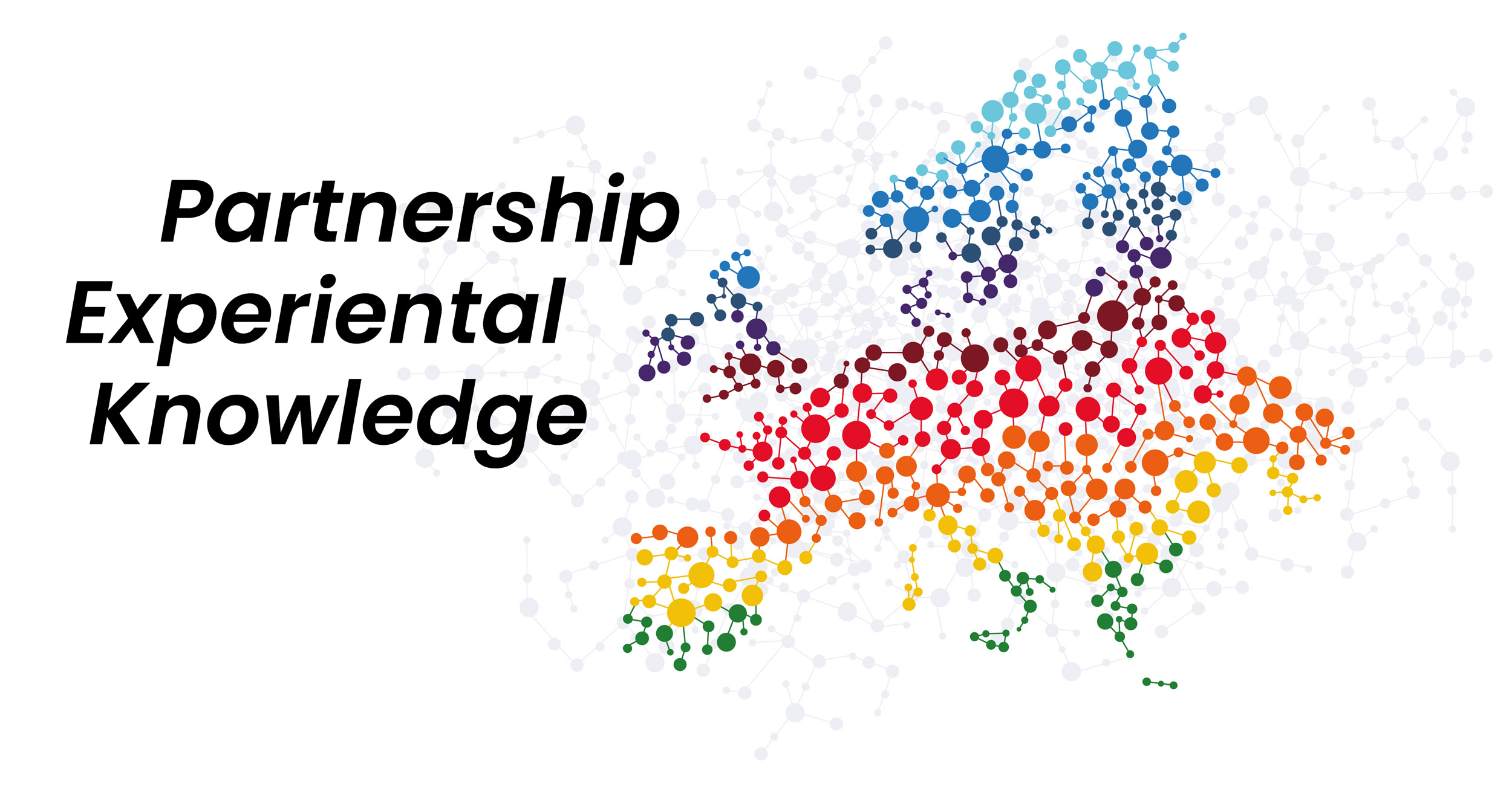Key educational principles
Within the Partnership Experiential Knowledge in higher education we are focusing on the elaboration of Key principles to integrate experiential knowledge in Social work and Nursing education programs.
Through a joint reflection with all partners we currently have developed a draft of the document about Key principles; it will be further discussed and elaborated in the next months through different actions, also involving in group discussion meetings educators, students and people `Experts by experience’ from each partner institution (see article of our Spanish colleagues on initial ideas) and during the conference and seminar working with Experiences in Higher Education in Vilnius, Lithuania.
Contact
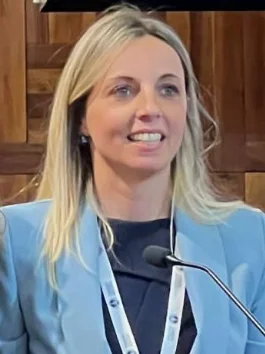
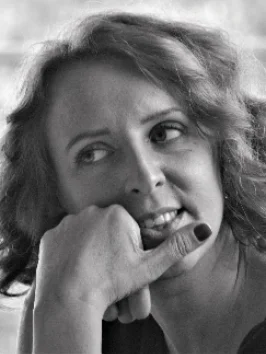
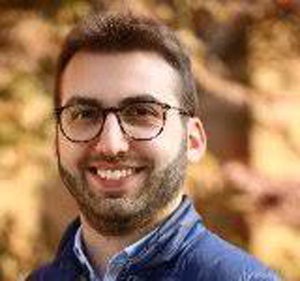
Brief update
The development of a document on key principles for the integration of experiential knowledge in Social work and Nursing education is underway. The first version of the key principles document will be enriched with emerging feedback from the workshop held during the conference in Vilnius (Lithuania) and findings from data collected through group discussion sessions with educators, students and experts by experience implemented by each partner in different participating countries. During the Conference in Lund, two colleagues of Italian team, Camilla Landi e Marco Grassini, presented a workshop entitled ‘Co-creating transnational knowledge through national group meetings’. In this workshop they shared the findings from the group meetings organized in 9 partner countries. Participants enriched the presentation with comments and questions.
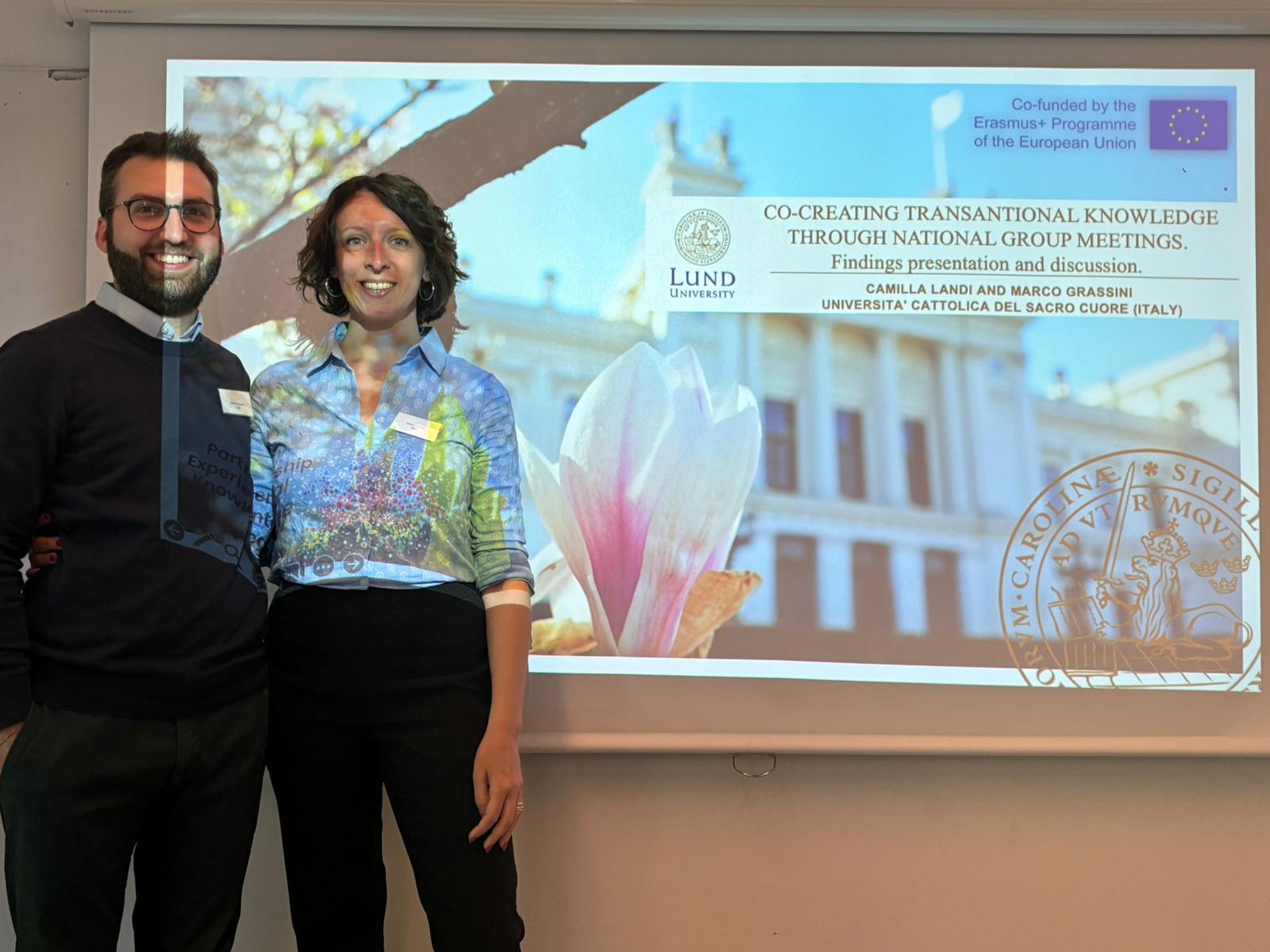
In addition, during the Conference in Lund the Italian team organized a Worldcafè activity aimed at exploring through different voices the ethical issues around the involvement of experiential knowledge in social work and nursing education.
The activity was participated by 16 people from 7 countries, including professors, social workers, social work students and experts by experience. Through 3 table round participants shared many information and example based on their experiences.
Findings from Worldcafè activity will be analyzed soon. These findings will contribute to the development of the third part of the framework document of WP 1.
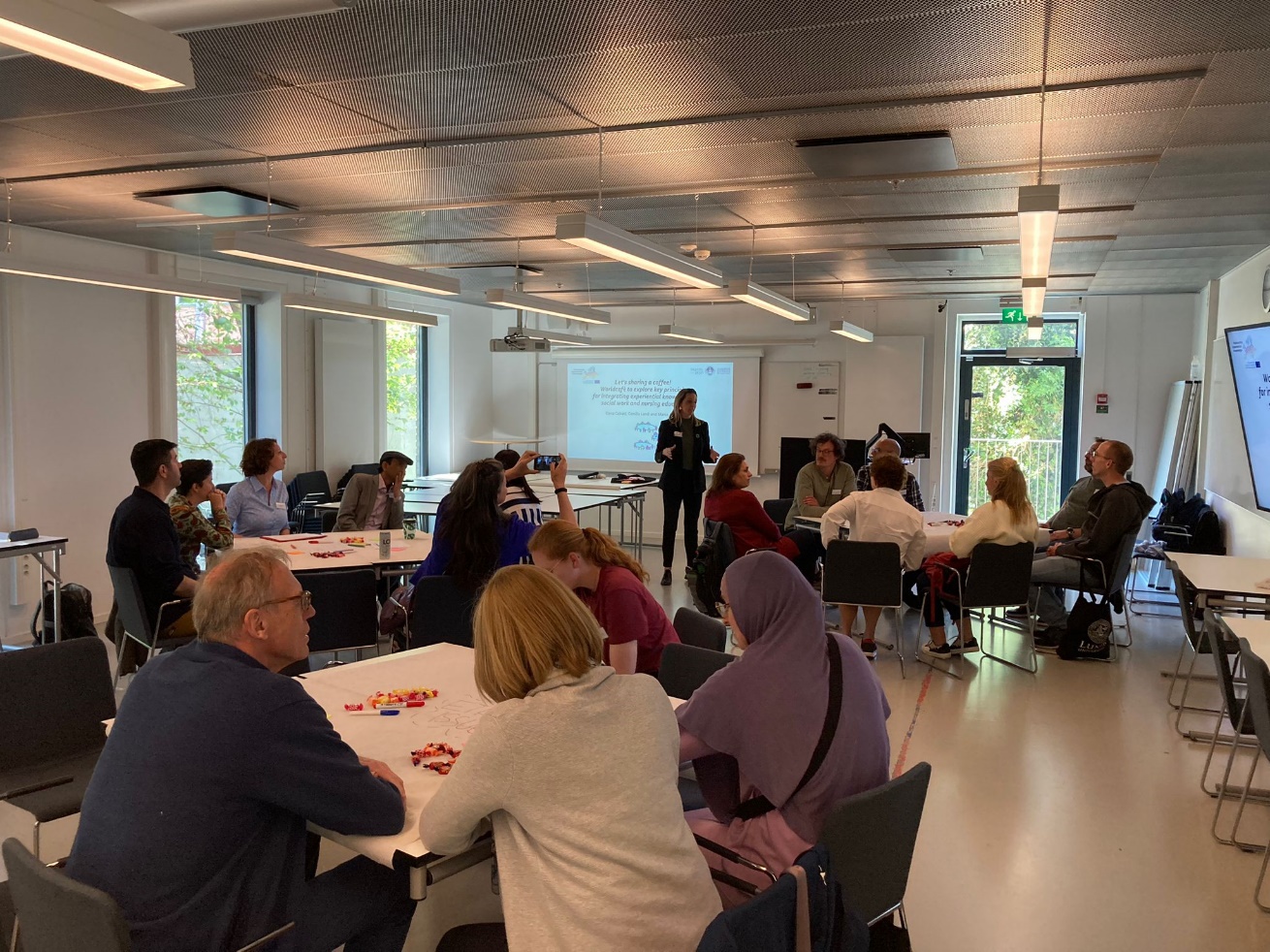
A joint message by a social worker (Elisa Pellicone) and an expert by experience (Nadeem Shahzad) who attended the conference activities in Lund:
“It was a great experience to join the activities and the seminar that took place in Lund. We had the possibility to gain plenty of knowledge about experts by experience and their involvement and role inside the University field. Discovering how different Countries and Institutions try to promote the contribution of EBEs was inspiring. Also, the participation of EBEs at the conference activities has been worthy: everyone had the possibility to share thoughts, feelings, discoveries, approaches and ideas and each voice was as precious as the others. The discussions among lecturers, researchers, students and EBEs have been exciting and could probably lead to an improvement in social work courses around Europe” (Elisa and Nadeem)
Elisa and Nadeem were part of the Italian team, also composed by Elena, Camilla and Marco. This is a nice picture taken in Lund.
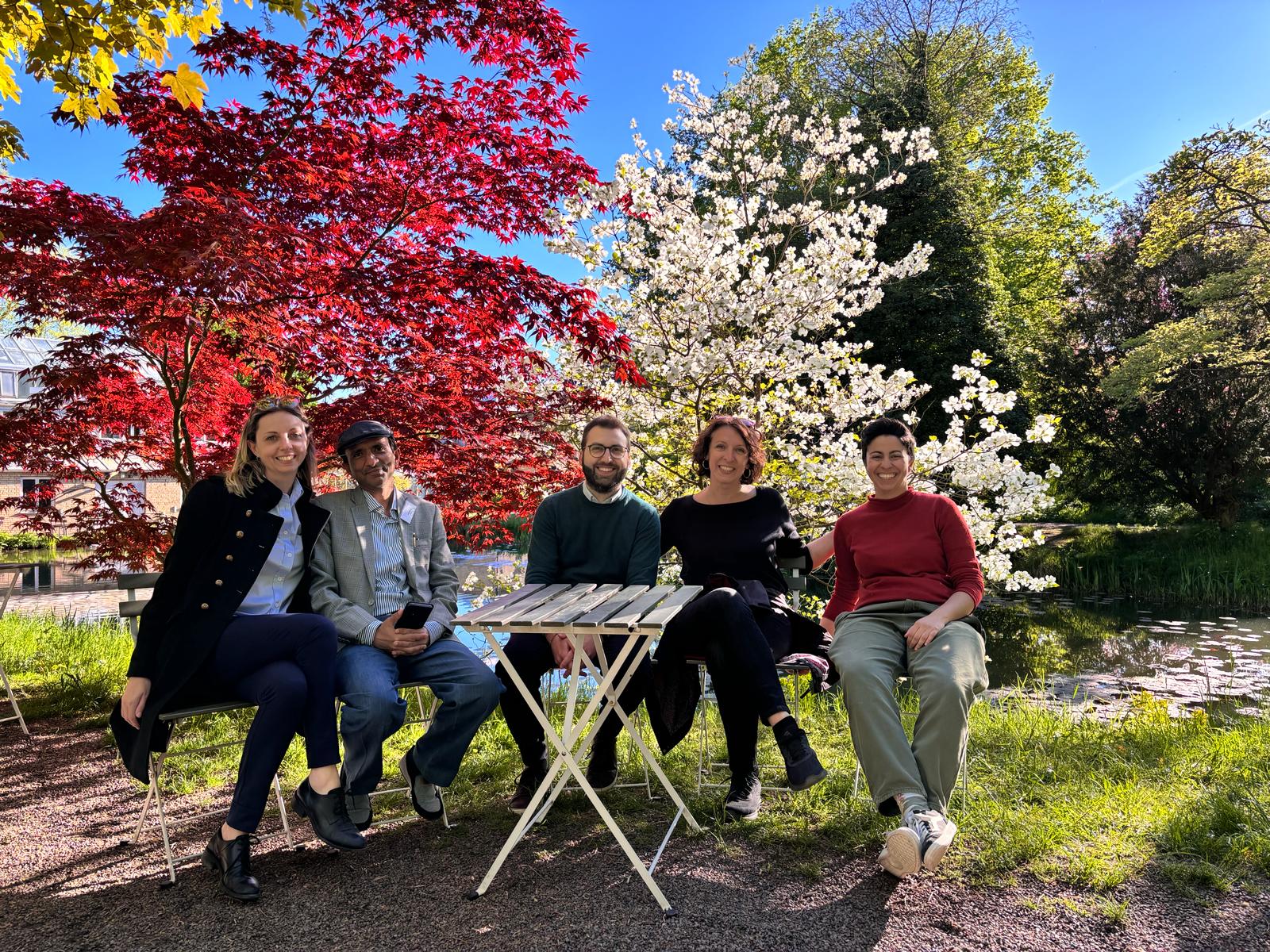
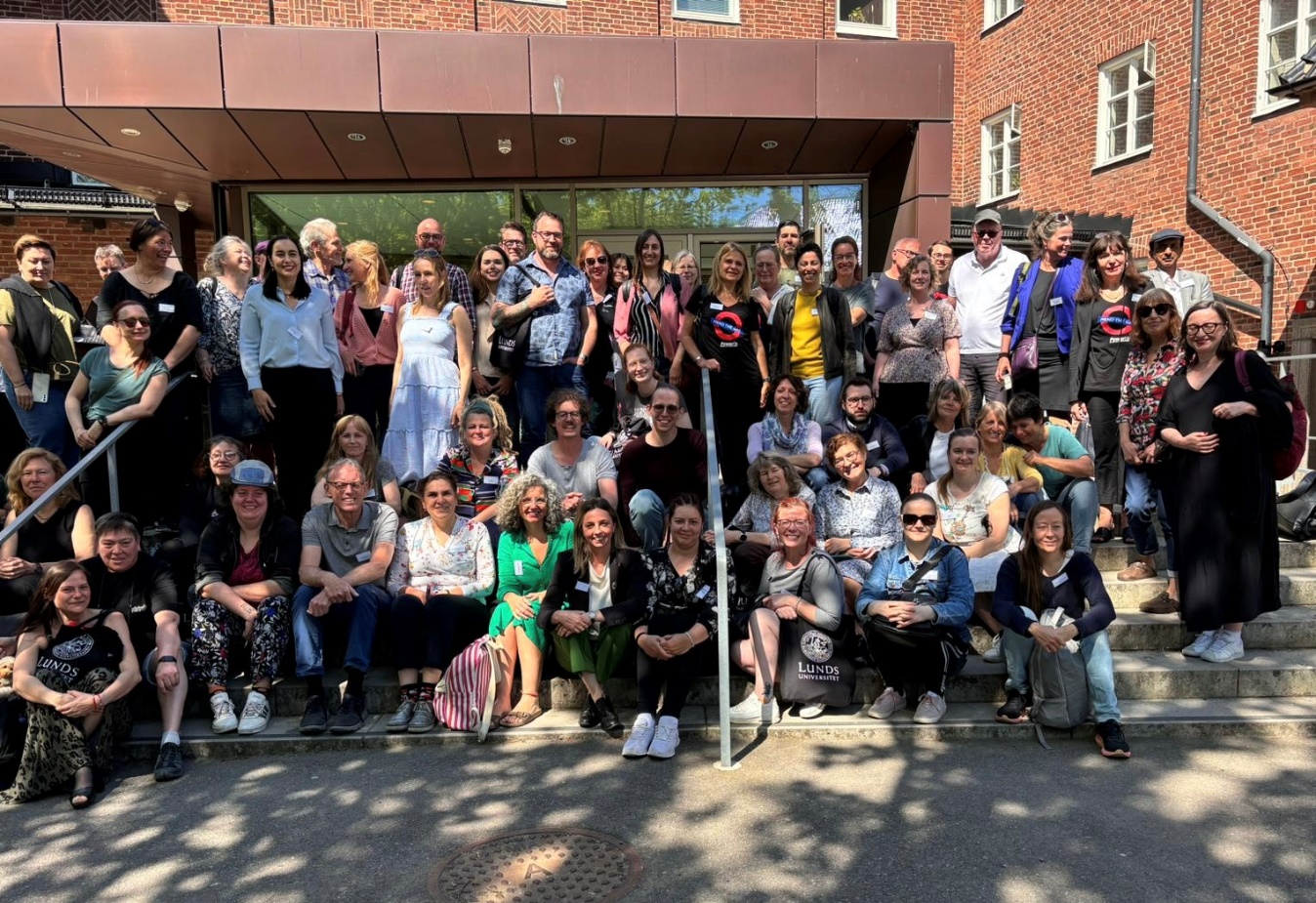
Another joint message by a social worker (Simona) and an expert by experience (Fatma) who attended the conference activities in Vilnius (May 2023)
Reciprocity and Plurality of Voices: our Experience in the International Seminar on Experiential Knowledge at Vilnius University
This reflection has been written by Fatma, expert by experience, and Simona, social worker and educator at the Università Cattolica del Sacro Cuore (Milan, Italy) who participated in the Vilnius Conference and in the Seminar on Experiential Knowledge.
This experience allowed us to reflect on the importance of integrating professional knowledge and experiential knowledge in the Social Work programme, to rework the activities carried out at the University with this approach, to share the learning with other participants, to learn from the experiences of other countries and to strengthen our skills.
We do not consider the concept of experiential knowledge in Social work education as an acquired concept, but as a process of continuous learning and awareness: the Vilnius experience was a step forward in this sense.
The view of Fatma, expert by experience
My involvement as an expert by experience at the Università Cattolica del Sacro Cuore began two years ago, when I was invited in a Social Work course to speak about my participation in a community work project.
I decided to accept because I believed in the goodness of the project we had set up to promote well-being for and with single mothers in our district: it had helped me and other people. However, at first, I didn’t really understand how my difficult life experience could help the students.
This conference helped me to become more aware and better understand how our experiences can be useful in training courses. I appreciated the welcoming and sensitive atmosphere, I felt free to share my contribution.
A few years ago, I would not have been ready to talk about my experience, now I have accepted and processed it and I am ready to share it both for the training of future social workers and as a woman for other women who are experiencing or have experienced a problem similar to mine.
The view of Simona, social worker and educator
Learning from encounters with experts by experience is important and constructive in the training of future social workers. Over the years I have approached this topic from different perspectives: as an inexperienced social work student who met experts by experience during my studies, as a social worker and as a young educator. In each of these positions, the participation of experts by experience was and is a learning opportunity for me, as was the event in Vilnius.
The conference allowed us to reflect on the activities of the different countries that have already experienced the involvement of experts by experience, to exchange practical indications on how to involve experts by experience and to give and receive new impulses.
It also allowed experts by experience, educators and professionals to reflect together, on an equal footing between participants from different backgrounds, on possible developments in cooperation and reciprocity.
The international meeting left me with the desire to experiment with new ways of involving experts by experience, aware of the human and professional value they bring to the training of social workers.
I believe that the fruitful success of the conference and the seminar is proof of the virtuous collaboration, also in this case, between experts by experience, educators and professionals.
Read more about the seven work packages
Articles:
Key educational principles
Recap Event: Experiential Knowledge and Experiential Learning in Higher Education
We look back on three successful days on learning from and working with experiential knowledge both in social work and nursing education and in practice. A special thanks to our host Windesheim University of Applied Sciences and partnership Experiential Knowledge. The...
Newsletter Experiential knowledge in higher education #4 – Erasmus+
SAVE THE DATE: End conference Experiential Knowledge in Higher education in the Netherlands
*** Save the date! More information will come on this page! *** Experiential knowledge and learning: a pathway to inclusive education Learning Event & Conference Erasmus+ project Experiential Knowledge in Higher Education Registration is open now,...
Recap Conference & Seminar Peer Support and Experiential Knowledge
We look back on three successful days around using personal experience in health- and social work practice, education and research. Click here for a recap of the events. The next events is 9 till 11 October in the Netherlands: Experiential knowledge and learning: a...
Save the date! FINAL EVENT ERASMUS+ PROJECT EXPERIENTIAL KNOWLEDGE
When: 9 till 11 October 2024 Where: Windesheim University of Applied Sciences, Zwolle, Netherlands Program: 9th October: Seminar - learning event with workshops about how to integrate experiential knowledge in education 10th October: Conference Learning from...
Newsletter Erasmus Strategic Partnership on Experiential knowledge, summer 2023
Webinar five with Jean-Pierre Wilken
Welcome on Friday the 12/5 15.30 CET. Jean-Pierre Wilkens from Utrecht, The Netherlands will talk about experiential knowledge. You can see the webinar in the YouTube link below!
Initial thoughts – focusgroup principles experiential knowledge
The aim of the focus groups is to explore the opinions and viewpoint from educators, experts by experience and students about Experiential Knowledge (EK) and the key principles for integrations of EK in the curricula of social work an nursing. In Spain we carried out...
Experience included: Towards an educational design with experience as a source of power and knowledge
At the HU University of applied sciences a group of lecturers, researchers and an educational expert is teaming up to create a educational design where experiential knowledge is included and fits in the current design of the bachelor social work. After getting input...
The world’s first Master on Experiential Expertise set to launch in September
Zwolle, April 2023 – Windesheim University of Applied sciences is proud to announce the launch of the world’s first Master on Experiential Expertise, starting in September 2023. The master Experiential Expertise is meant for professionals who wish to take their...
Working with Experts by Experience
By Nicole den Besten, student Social Work at University of applied science Utrecht. My name is Nicole and I am a student in my final year of Social Work at the Hogeschool Utrecht University of applied sciences (HU). Last year I participated in the “Mend The Gap”...
Strategic Partnership, Experiential knowledge
Experiental Knowledge in Higher Education is a strategic partnership between twelve universities from ten countries in Europe. The three year project focuses on creating educations on experiental knowledge and building strategies for strengthening and individualizing...
